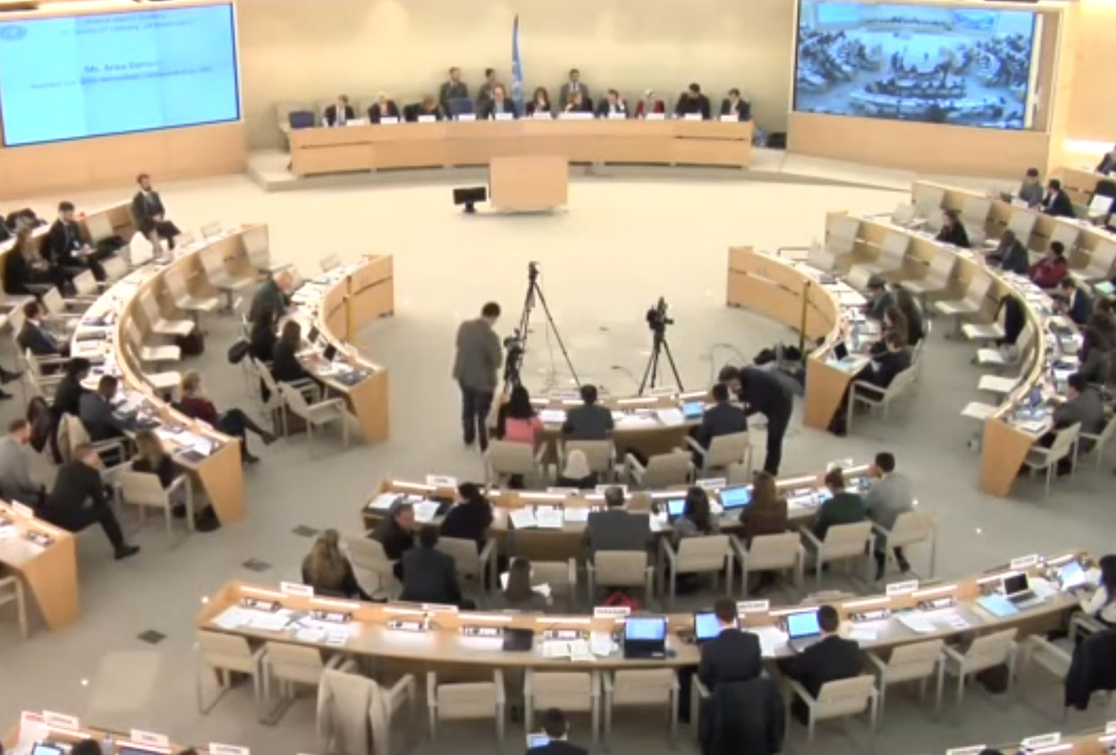
At the invitation of the Human Rights Council and the United Nations High Commissioner for Human Rights, SNHR took part, on March 14, 2017, in the 34th regular session of the Human Rights Council, via the high-level panel discussion, which was attended by the president of the Human Rights Council, the High Commissioner for Human Rights, the Commissioners of the Independent International Commission of Inquiry on the Syrian Arab Republic, and the state members of the Human Rights Council.
Fadel Abdul Ghany, chairman of SNHR, focused on four key points:
First: Mr. Abdul Ghany outlined the size of the tragedy based on the data that SNHR recorded, which reads that roughly 106,000 individuals are still under arrest; 80% of those have become forcibly-disappeared.
Second: He noted that the Syrian regime tops all other parties with 87% of the entirety of the detainees, stressing that this is the first machine, which is followed by the torture machine, where the crimes perpetrated amount to genocide, and then comes the machine of enforced-disappearance.
Mr. Abdul Ghany noted that other parties (The Kurdish Democratic Union Party, armed opposition, and extremist Islamic groups) have imitated the Syrian regime’s three machines and implemented them to varying degrees.
Third: Mr. Abdul Ghany emphasized that the issue of detainees is a part of a whole, where it is a part of an overall Syrian catastrophe that was a popular uprising towards democracy, which was met with arrest, torture, and bullets, and then it was left alone, or manipulated, before the crisis got more complicated and intertwined. He also said that making a breakthrough in a partial issue such as detainees, refugees, or even a ceasefire is a complex endeavor, as presenting a comprehensive solution for the Syrian tragedy is a must.
Furthermore, Mr. Abdul Ghany holds the politicians, the states that didn’t support the Syrian people, and the Security Council responsible.


